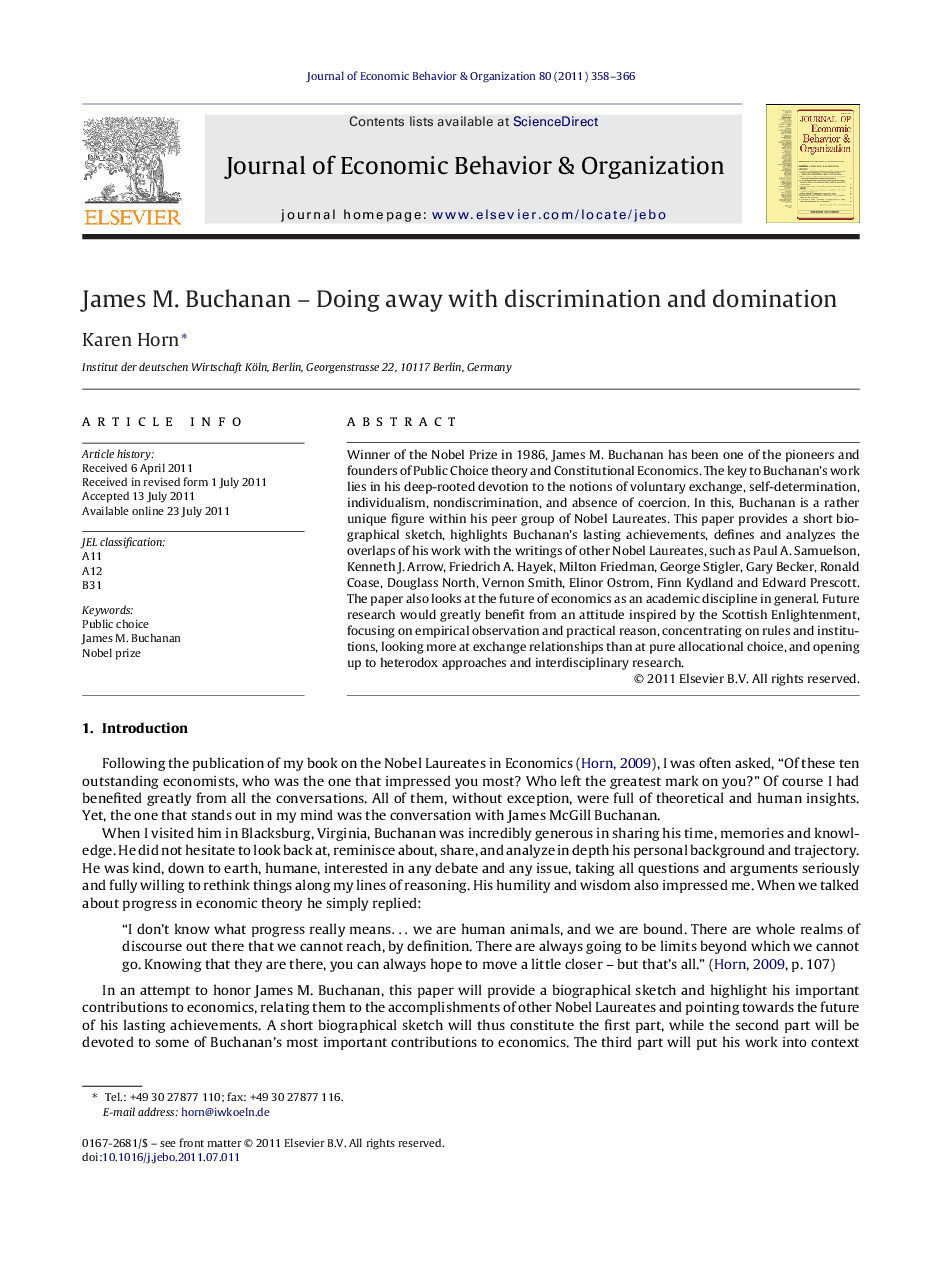| Article ID | Journal | Published Year | Pages | File Type |
|---|---|---|---|---|
| 883912 | Journal of Economic Behavior & Organization | 2011 | 9 Pages |
Winner of the Nobel Prize in 1986, James M. Buchanan has been one of the pioneers and founders of Public Choice theory and Constitutional Economics. The key to Buchanan's work lies in his deep-rooted devotion to the notions of voluntary exchange, self-determination, individualism, nondiscrimination, and absence of coercion. In this, Buchanan is a rather unique figure within his peer group of Nobel Laureates. This paper provides a short biographical sketch, highlights Buchanan's lasting achievements, defines and analyzes the overlaps of his work with the writings of other Nobel Laureates, such as Paul A. Samuelson, Kenneth J. Arrow, Friedrich A. Hayek, Milton Friedman, George Stigler, Gary Becker, Ronald Coase, Douglass North, Vernon Smith, Elinor Ostrom, Finn Kydland and Edward Prescott. The paper also looks at the future of economics as an academic discipline in general. Future research would greatly benefit from an attitude inspired by the Scottish Enlightenment, focusing on empirical observation and practical reason, concentrating on rules and institutions, looking more at exchange relationships than at pure allocational choice, and opening up to heterodox approaches and interdisciplinary research.
► James M. Buchanan is one of the pioneers and founders of Public Choice theory and Constitutional Economics. ► Voluntary exchange, self-determination, independence, individualism, non-discrimination, absence of coercion and liberty are key notions in his work. ► Theoretical overlaps are closest with Nobel Laureates Hayek, Friedman, Stigler, Becker, Coase, North, Smith and Ostrom. ► Economics should focus more on rules and institutions as well as exchange relationships. ► More openness is needed for heterodox approaches and interdisciplinary research.
